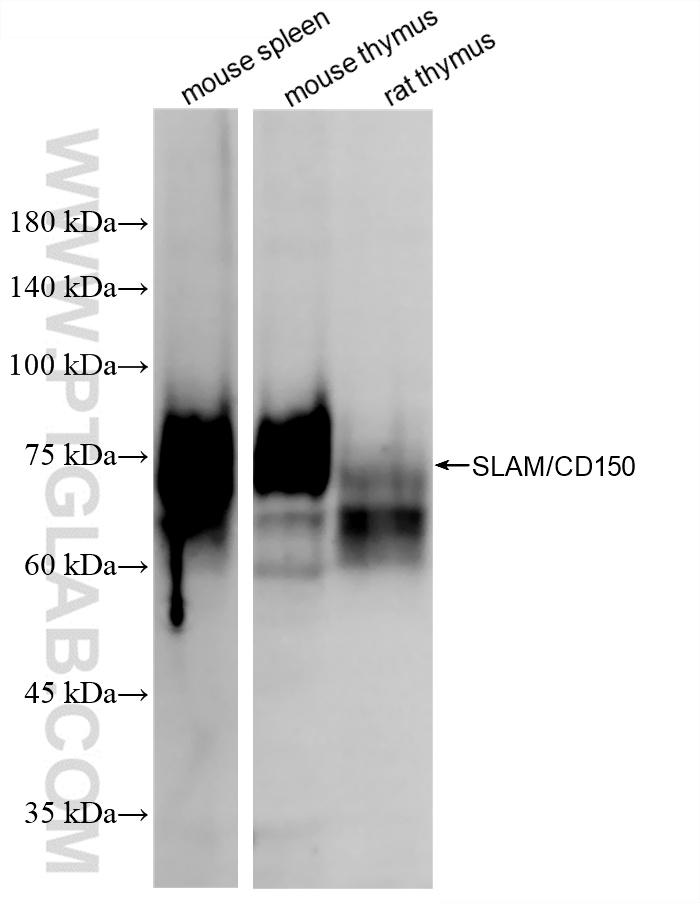验证数据展示
经过测试的应用
| Positive WB detected in | mouse spleen tissue, mouse thymus tissue, rat thymus tissue |
推荐稀释比
| 应用 | 推荐稀释比 |
|---|---|
| Western Blot (WB) | WB : 1:2000-1:10000 |
| It is recommended that this reagent should be titrated in each testing system to obtain optimal results. | |
| Sample-dependent, Check data in validation data gallery. | |
产品信息
85073-1-RR targets SLAM/CD150 in WB, ELISA applications and shows reactivity with mouse, rat samples.
| 经测试应用 | WB, ELISA Application Description |
| 经测试反应性 | mouse, rat |
| 免疫原 |
Recombinant protein 种属同源性预测 |
| 宿主/亚型 | Rabbit / IgG |
| 抗体类别 | Recombinant |
| 产品类型 | Antibody |
| 全称 | signaling lymphocytic activation molecule family member 1 |
| 别名 | Slamf1, SLAM family member 1, Slam, Signaling lymphocytic activation molecule, CD150 |
| 计算分子量 | 38 kDa |
| 观测分子量 | 70-80 kDa |
| GenBank蛋白编号 | NM_013730.4 |
| 基因名称 | Slamf1 |
| Gene ID (NCBI) | 27218 |
| 偶联类型 | Unconjugated |
| 形式 | Liquid |
| 纯化方式 | Protein A purification |
| UNIPROT ID | Q9QUM4-1 |
| 储存缓冲液 | PBS with 0.02% sodium azide and 50% glycerol, pH 7.3. |
| 储存条件 | Store at -20°C. Stable for one year after shipment. Aliquoting is unnecessary for -20oC storage. |
背景介绍
Signaling lymphocytic activation molecule (SLAM, also known as SLAMF1 or CD150) is a 70-95 kDa transmembrane glycoprotein that belongs to the immunoglobulin gene superfamily. SLAM is constitutively expressed on peripheral blood memory T-cells, T-cell clones, immature thymocytes and a proportion of B-cells, and is rapidly induced on naive T-cells after activation. SLAM is involved in T cell stimulation and cytokine production, and may play an important role in the regulation of immune responses to pathogens.
实验方案
| Product Specific Protocols | |
|---|---|
| WB protocol for SLAM/CD150 antibody 85073-1-RR | Download protocol |
| Standard Protocols | |
|---|---|
| Click here to view our Standard Protocols |


